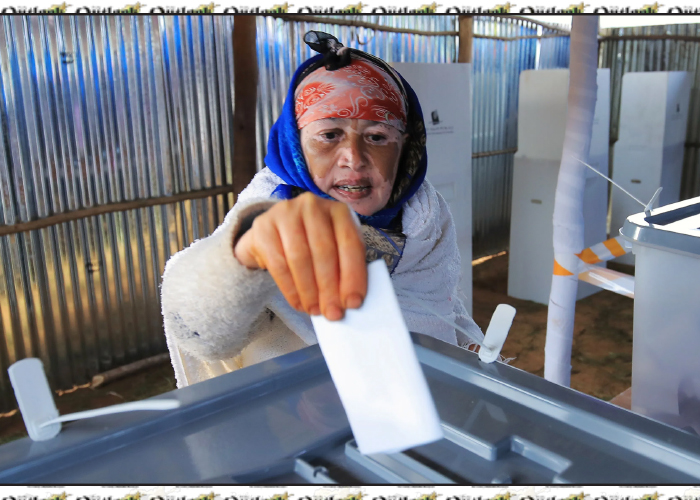A vote count is under way in Ethiopia’s capital, Addis Ababa, for the parliamentary elections after polls finally closed following a three-hour extension.
Africa’s second-most populous country went to the polls on Monday but an opposition boycott, war, ethnic violence and logistical challenges overshadowed the vote in some regions.
Voting was scheduled to close at 6pm (15:00 GMT) but was extended well past 9pm in many places.
The vote was seen as a major test for Prime Minister Abiy Ahmed, whose rise to power initially seemed to signal a break with decades of authoritarian rule, but who has since waged war in the Tigray region and whose party has been accused of election abuses.
The parliamentary election, delayed from last year, was the centrepiece of the promised reform drive by Abiy, the 2019 Nobel Peace Prize winner, and he has described the poll as “the nation’s first attempt at free and fair elections”.
Some polling stations have started posting results. Preliminary results are expected within five days, and final ones are expected within two weeks.
More than 37 million of Ethiopia’s 109 million people were registered to vote, choosing from 46 parties and more than 9,000 candidates – a record, according to the electoral board.
Vote manipulation, irregularities
Election board chief Birtukan Midekssa said authorities were unable to hold elections in four of Ethiopia’s 10 regions.
In two of the regions that did vote, opposition observers were reportedly chased away from many polling stations, she said.
“This will jeopardise the credibility of the election process,” Midekssa warned.
Voting was delayed in different areas for different reasons.
Voters in Ethiopia’s Sidama state had a second chance to cast ballots on Tuesday after officials there ran out of voting papers the day earlier. The second day of voting in Sidama started at 11 am (0800 GMT).
Voting was also not held in some parts of the Benishangul-Gumuz region after ethnic violence prevented voter registration.
In more than 100 of the country’s 547 constituencies, polls were not even open on Monday – either because of the ongoing war in the northern Tigray region or logistical issues elsewhere. No date has been set for voting in Tigray’s 38 constituencies.
The rest will vote in September and the next government likely will not be formed until that happens.
‘Kicked out our observers’
Berhanu Nega, head of one of the leading opposition parties the Ethiopian Citizens for Social Justice, said in a video statement released by the party after casting his ballot that observers from his party had been “kicked out” of many places.
“In the Amhara region and in the south, there is an additional serious problem that we have observed which is that in a number of places they have kicked out our observers or they wouldn’t allow them from the start in the morning,” said Nega.
“We have compiled this and informed the election board about this. We have also informed the authorities hoping that there will be some solution to this before one can conclude in any form or shape that this is a reflection of the whole process,” he added.
International concern has been growing about the vote, and opposition groups have accused Ethiopia’s ruling party of harassment, manipulation and threats of violence that echo abuses of the past.
One opposition leader still said he hoped the election would come off with only minor problems, but some prominent opposition parties were boycotting the election, notably in the country’s most populous region, Oromia.
Others say they were prevented from campaigning in several parts of the country.
Abiy, whose party is widely expected to cement its hold on power, is also facing growing international criticism over the war in Tigray, sparked in part because the region’s now-fugitive leaders objected to Ethiopia postponing the election last year amid the COVID-19 pandemic. (Aljazeera)
Home » World » Vote Count Under Way in Ethiopia after Contentious Election
Vote Count Under Way in Ethiopia after Contentious Election

